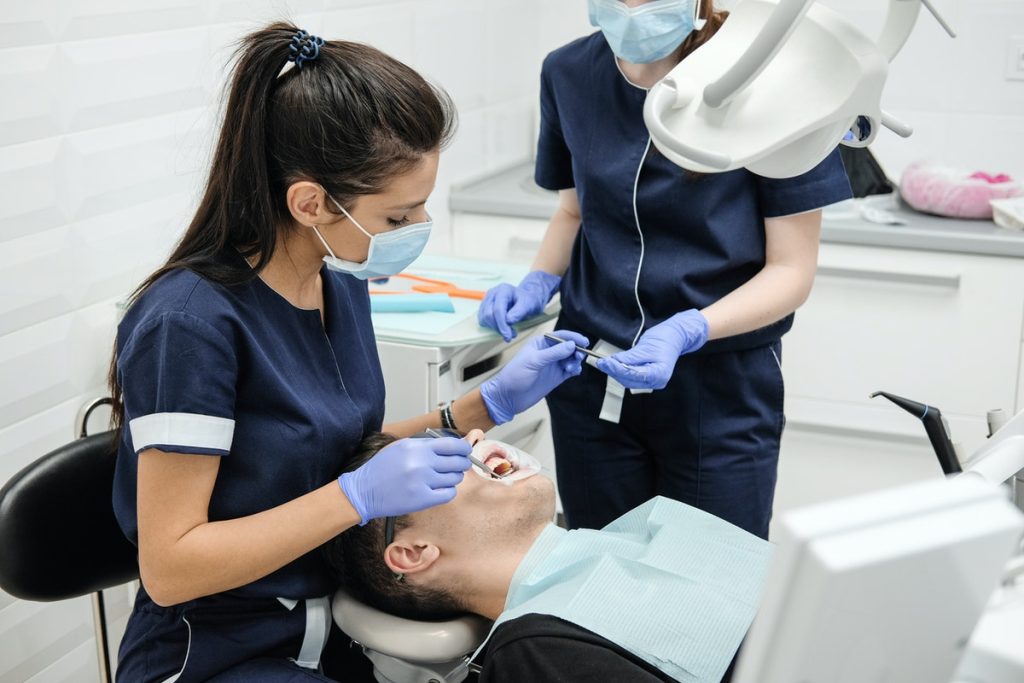It’s no secret that technology has revolutionized the way people live and work. But did you know that it can also be used to maintain oral health? Thanks to advances in dental technology, keeping your teeth and gums healthy is easier than ever.
Although good oral health is necessary for well-being, many people suffer from common oral health problems like tooth decay, gum disease, and jaw disorders. These conditions are preventable with regular care, but some people don’t have access to this type of care.
This article will explore ways you can use technology to maintain oral health.
Wear a Mouthguard When You Play Sports
Mouthguards are essential for preventing injuries to the teeth and mouth. When playing sports, it is important to wear a mouthguard to protect yourself from potential injuries. A mouthguard can help cushion a blow to the face or jaw and can help prevent teeth from being knocked out or fractured.
Mouthguards can also help protect the mouth’s soft tissues from being cut or lacerated. Soft tissue injuries can be painful and slow to heal, so wearing a mouthguard is crucial to preventing them. Additionally, a properly fitting mouthguard can help reduce the risk of concussion by providing extra cushioning and protection for the jaw.
Finally, wearing a mouthguard can help athletes communicate more clearly with their teammates. This is especially important for team sports, as communication between players is essential for successful play.

Use Dental Appliances to Correct Oral Health Issues
If you are experiencing oral health issues, using a dental appliance may be the best way to correct them. Dental appliances are devices that help correct problems with your teeth and mouth. Some common dental appliances include braces, retainers, and night guards.
Braces are used to correct crooked teeth, while retainers are used to keep teeth in position after braces are removed. Night guards are used to protect teeth from grinding and clenching. You should also consider getting a reliable soft occlusal splint if you are experiencing bruxism issues. The appliance can ease muscle tension in your jaw. It also normalizes your bite without using medication. All of these dental appliances can help correct a variety of oral health issues.
If you are experiencing problems with your teeth or mouth, you must see a dentist as soon as possible. The dentist can help determine if a dental appliance would be the best way to correct the issue.
Use an Electric Toothbrush
Electric toothbrushes are more effective at removing plaque and tartar than manual toothbrushes. They are also more comfortable and can be used for a more extended period without tiring out your hand. An electric toothbrush is important as it helps to promote good oral hygiene. It can also reduce the risk of gum disease, cavities, and other oral health problems.
An electric toothbrush has a rotating head that can reach deeper into the crevices between your teeth and gums, allowing for more thorough cleaning. The brush also vibrates to help massage your gums, which can help improve blood circulation in your mouth.
When selecting an electric toothbrush, it is crucial to look for one with a two-minute timer and a rechargeable battery. Choosing one with soft bristles is also vital, as stiff bristles may be too abrasive and cause damage to the enamel of your teeth. Lastly, replacing the brush head regularly is crucial to ensure optimum performance.
Following these tips and using an electric toothbrush can help maintain good oral hygiene and reduce your risk of developing dental problems. This is important for adults and children to ensure healthy teeth and gums.
Floss Regularly
Flossing is one of the most important things you can do for oral health. It helps remove plaque and bacteria from your teeth and gums, and it can help prevent cavities and gum disease.
It’s essential to floss regularly – at least once a day. If you need more time to floss daily, try to floss at least three times a week. And be sure to use good quality flosses, such as dental floss or water flossers.
Remember, flossing is just as important as brushing your teeth. So make sure you take the time to floss properly and keep your mouth healthy!
Visit Your Dentist
You must visit the dentist regularly, even if you’re diligent with your oral health routine. Going to the dentist twice a year will help ensure that any dental problems are caught early before they become serious or painful.
At your regular check-up, your dentist can assess your risk for cavities and gum disease and check for signs of oral cancer and other conditions. Your dentist can also provide professional cleanings to help remove stubborn plaque and tartar build-up on your teeth and gums.
Technology can be a great ally in the fight for good oral health. Following the tips in this blog post, you can use technology to keep your teeth and gums healthy.


